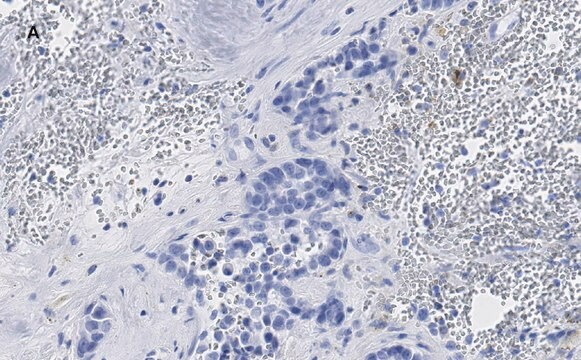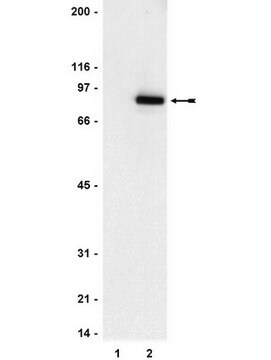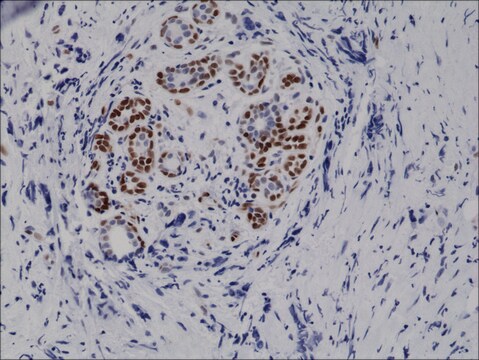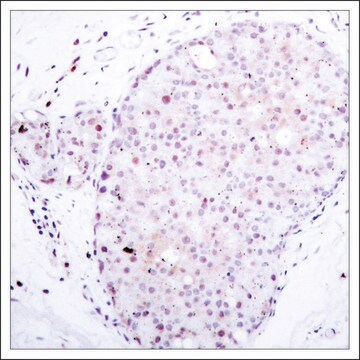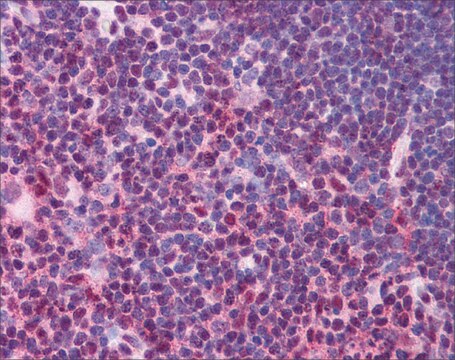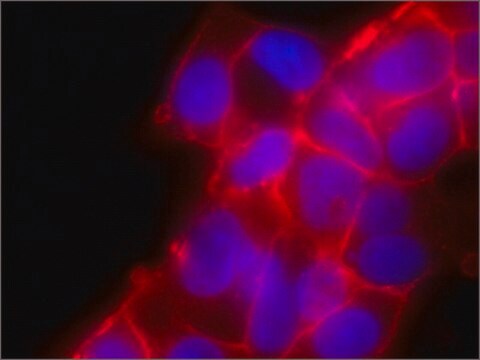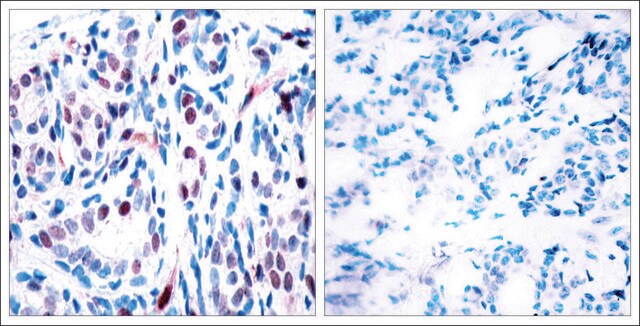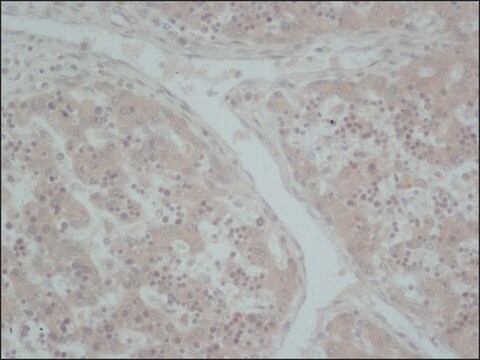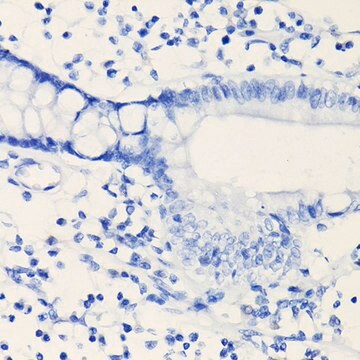SAB4300034
Anti-phospho-STAT3 (pSer727) antibody produced in rabbit
affinity isolated antibody
Sinónimos:
Anti-APRF antibody produced in rabbit, Anti-FLJ20882 antibody produced in rabbit, Anti-HIES antibody produced in rabbit, Anti-MGC16063 antibody produced in rabbit, Anti-signal transducer and activator of transcription 3 (acute-phase response factor) antibody produced in rabbit
About This Item
Productos recomendados
origen biológico
rabbit
conjugado
unconjugated
forma del anticuerpo
affinity isolated antibody
tipo de anticuerpo
primary antibodies
clon
polyclonal
formulario
buffered aqueous solution
mol peso
~88 kDa
reactividad de especies
mouse, human, rat
concentración
1 mg/mL
técnicas
immunohistochemistry (formalin-fixed, paraffin-embedded sections): 1:50-1:100
indirect immunofluorescence: 1:100-1:200
western blot: 1:500-1:1000
isotipo
IgG
secuencia del inmunógeno
(P-M-SP-P-R)
Nº de acceso NCBI
Nº de acceso UniProt
Condiciones de envío
wet ice
temp. de almacenamiento
−20°C
modificación del objetivo postraduccional
phosphorylation (pSer727)
Información sobre el gen
human ... STAT3(6774)
Descripción general
Inmunógeno
Aplicación
Acciones bioquímicas o fisiológicas
Características y beneficios
Descripción de destino
Forma física
Cláusula de descargo de responsabilidad
¿No encuentra el producto adecuado?
Pruebe nuestro Herramienta de selección de productos.
Código de clase de almacenamiento
10 - Combustible liquids
Clase de riesgo para el agua (WGK)
WGK 1
Punto de inflamabilidad (°F)
Not applicable
Punto de inflamabilidad (°C)
Not applicable
Certificados de análisis (COA)
Busque Certificados de análisis (COA) introduciendo el número de lote del producto. Los números de lote se encuentran en la etiqueta del producto después de las palabras «Lot» o «Batch»
¿Ya tiene este producto?
Encuentre la documentación para los productos que ha comprado recientemente en la Biblioteca de documentos.
Los clientes también vieron
Nuestro equipo de científicos tiene experiencia en todas las áreas de investigación: Ciencias de la vida, Ciencia de los materiales, Síntesis química, Cromatografía, Analítica y muchas otras.
Póngase en contacto con el Servicio técnico